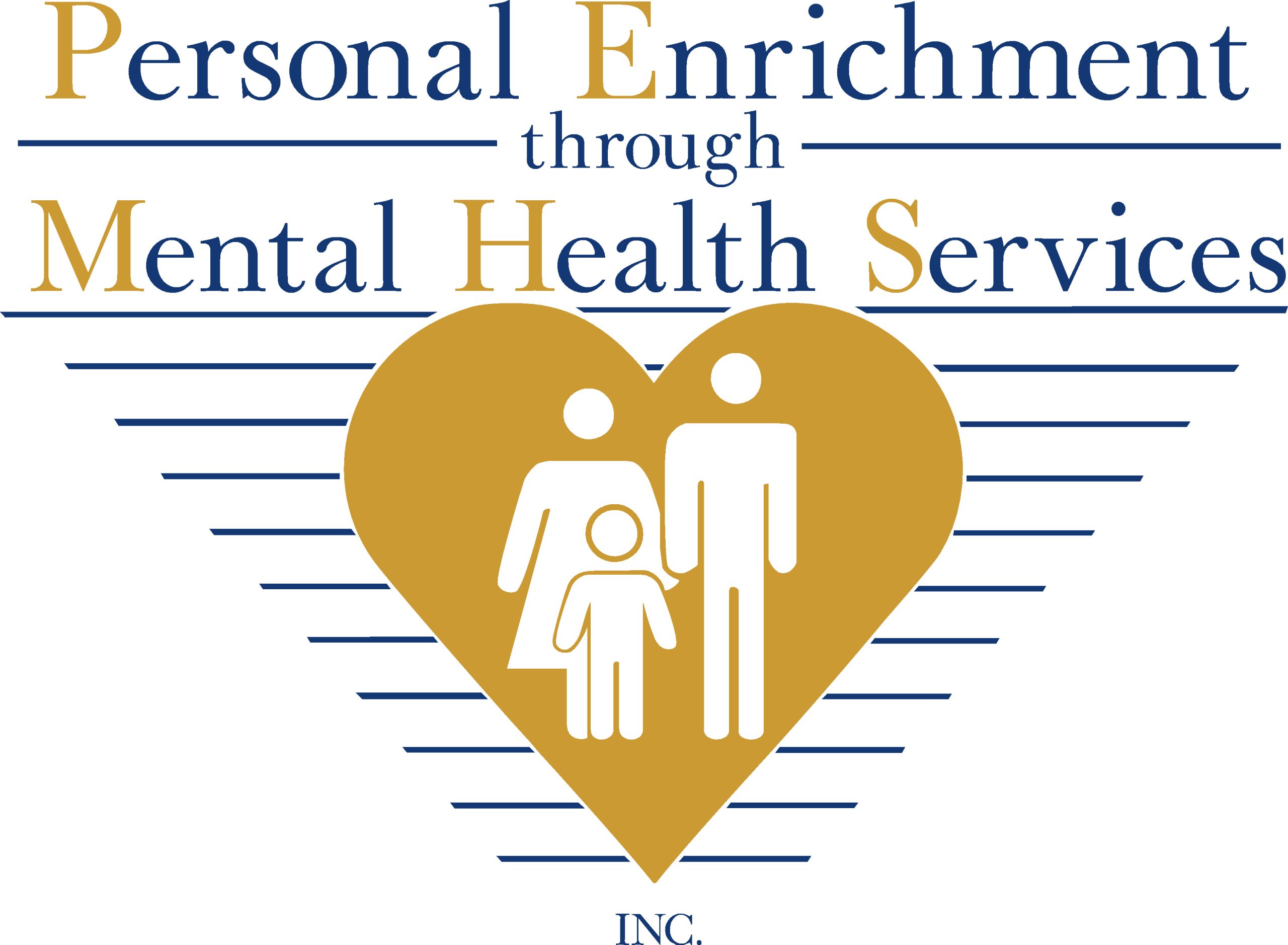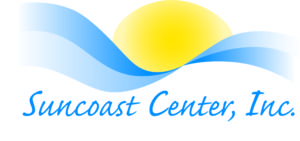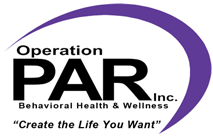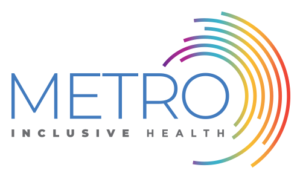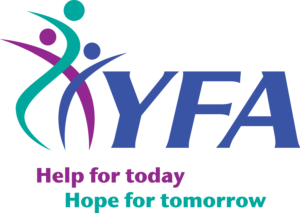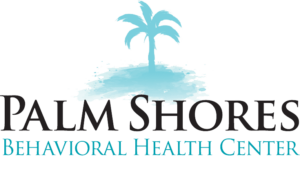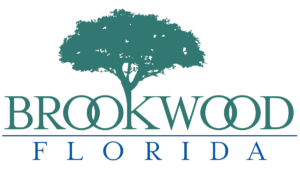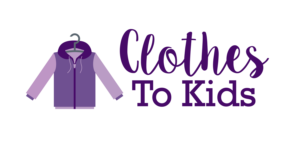Resources
Click the button below for the list of Family Services Initiative resources containing:
- Emergency Housing Information
- Domestic Violence Shelters
- Shelters for Pregnant Women
- Transitional Housing
- Other Services
- Affordable Housing
- Public Housing
- Utility/Rent Assistance
- Career Source Information
- Staffing Agencies
- Online Employment Assistance
- Resources for Ex-Offenders
- Resources for the Disabled
- Resume Assistance
- Clothing Assistance
- Food Pantry
- Suicide, Mental Health, Addiction/Substance Misuse, Domestic Violence Services
More resources:
Schedule an Appointment: 727.388.1220
Administrative Office: 727.327.7656 fax:727.322.2109
Sexual Assault Service Helpline: 727.530.7273
Abuse Hotline: 800.962.2873
How We Can Help…Since 1944, Suncoast Center has been providing solutions for life’s stressors to families and individuals throughout our community. Suncoast Center provides services in three major areas:
Emotional Wellness
- Depression
- Anxiety
- Schizophrenia
- Bi-Polar Disorder
- Autism Spectrum Disorder
- Substance Abuse
Children’s Advocacy Services
- Prevention and education on child safety
- Parent Aide mentoring and support for parents
- Child neglect concerns and exams
- Child abuse concerns and exams
- Neuropsychological assessments related to child neglect, abuse or head injury of any type
Trauma Services
- Sexual assault exams
- Support services following a sexual assault
- Ongoing trauma services
Suncoast Center strives to strengthen families and to prevent child abuse by providing services such as:
- Assessment
- Individual Therapy
- Family Therapy
- Group Therapy
- Psychiatric Evaluations
- Case Management/Community Support Services
- Financial/Budget Literacy Workshops
Client Services: (727) 388-1220 • Administrative Offices: (727) 327-7656 • P.O. Box 10970 • St. Petersburg, FL 33733
For Help 24/7 Call: 1.888.727.6398
Website: https://www.operationpar.org/
Operation PAR is here to HELP! Whether you are concerned about your own drinking or drug use, or you are concerned about a loved one’s drinking and/or drug use, Operation PAR can HELP you break free from the effects of addiction. We offer a variety of services that help individuals and families Create the Life They Want!
We accept all major credit cards, cash, check, or money order. No one is denied services solely due to an inability to pay.
Click on one of our services below to find more information about the type of services we have available or you can fill out the contact form and one of our service counselors will get back to you shortly.
Family Services
We understand the turmoil drug and alcohol use creates in a family. Operation PAR was started because a mother was in this same situation with her child. Because of this, our treatment philosophy is a comprehensive approach that includes family education and participation.
Operation PAR’s sensitive, qualified counselors will help you and your family learn what your loved one is experiencing while in treatment services. You will also learn about:
- Addiction
- Signs and Symptoms of use
- Relapse Prevention
- And receive information for support groups like Alanon and NarAnon.
This ensures that you and your family receive all the services YOU need to Create the Life You Want!
Our treatment philosophy is a comprehensive approach that includes prevention, intervention, and the right level of care for each individual. This ensures that you and your family receive all the services YOU need to Create the Life You Want!
Our goal is to assist you and your family to improve your quality of life to become aware, responsible, happy and healthy!
We have the tools to help you choose the right path to make the right choices!
Affordable treatment is available call us for more information.
Administrative Offices
6655 66TH Street North, Pinellas Park FL 33781
Tel: 727-545-7564 | Fax: 727-545-7584 |
Mail: info@operpar.org & info@sastampabay.org
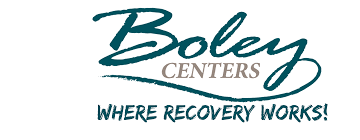
Established in 1970, Boley Centers, Inc., is a private, not-for-profit organization serving individuals with mental disabilities, individuals and families who are homeless, Veterans and youth in Pinellas, Manatee, Pasco and Sarasota Counties.
Click to open a one-page, printable overview of Boley Centers.
Thousands of individuals are assisted in recovering their mental health and reaching their highest level of independence. With over 50 housing and service center locations scattered throughout Pinellas County, the Organization provides a wide variety of treatment, recovery and vocational services; a network of living opportunities in community residences and apartments; and a large staff of people dedicated to improving the lives of individuals with disabilities. Boley Centers’ residential options – from highly structured group homes to permanent, supported apartments – provide affordable, attractive, safe living opportunities for over 1,200 individuals, making Boley Centers a leader in residential services and housing opportunities in the southeastern United States.
In accordance with section 504 of the Americans with Disabilities Act (ADA), Boley Centers will provide reasonable accommodation for consumers who are deaf or hard of hearing.
Boley Centers’ eligible programs have been accredited by the Commission of Accreditation of Rehabilitation Facilities (CARF) since 1989.
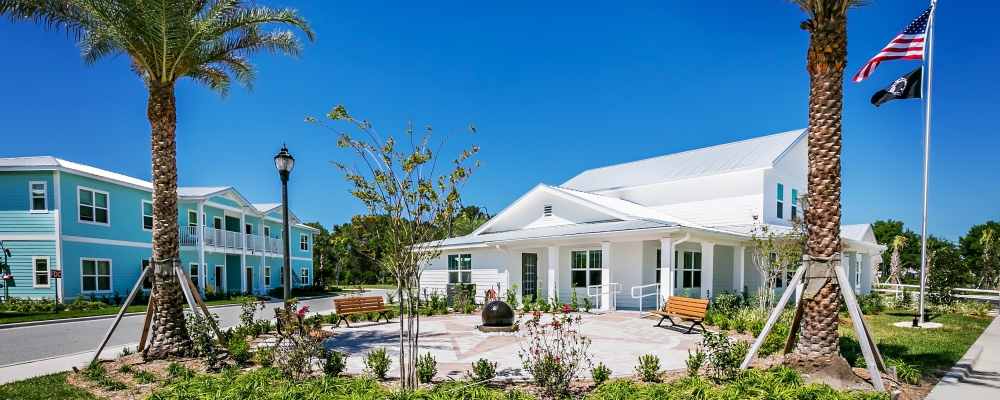
Paula J. Hays Building
445 31st Street N.
St. Petersburg, FL 33713
727-821-4819
Need more information?
855-55-BOLEY CARES
Website:
FAMILY-CENTERED, TRAUMA-INFORMED
Since 1982 we’ve been caring for the most vulnerable populations in Tampa Bay. By integrating our child welfare, behavioral health, and homeless services, we are able to wrap our clients in the care they need and put an end to the cycle of trauma. We are pioneering treatments and services that are shaping the future of trauma-informed care and providing the best possible support to the ones who need it the most.
OUR CARE
We have over 400 staff spread out across five counties that offer a variety of services focusing on healing and preventing trauma. We consistently develop service models specifically based on the needs we see in our community. Our innovative services have impacted the lives of over 21,000 people each year.
WHERE WE ARE
OUR CENTERS: Click here for addresses, hours of operation, and more.
- Clearwater Center
- Largo Center
- Starkey Lakes Suite 130
- Starkey Lakes Suite 145
- Hillsborough Center
CO-LOCATIONS: Our staff report directly to these locations to provide services, so that even more Pinellas County residents have access to Directions for Living’s care.
- Homeless Empowerment Program
- Catholic Charities – Pinellas HOPE
- Clearwater Health Department
- St. Pete Health Department
- Mid-County Health Department
- Pinellas Park Health Department
- Safe Harbor Shelter
- Tarpons Springs Health Department
- Intercultural Advocacy Institute Hispanic Outreach Center
- Department of Children and Families CPI Division in Highlands and Hardee Counties
- Public Defender’s Office of the Sixth Judicial Circuit
- Clearwater Police Department
- Pinellas County Sheriff’s Office
IN THE FIELD: Directions for Living has more than 250 staff in the field every day, meeting clients where they are for case management, therapy, parenting services, and more, improving access to care while using the comfort of familiar locations.
- Clients’ homes
- Schools
- Daycare centers
- Other neutral locations
CONTACT US
1437 S Belcher Rd, Clearwater, FL 33764
Phone: 727.524.4464
email: info@directionsforliving.org
We provide quality health and wellness services, that are inclusive, relevant, supportive, and represent the lifetime continuum of the people in our Tampa Bay community.
Website: https://www.metrotampabay.org/
- PRIMARY CARE
- HIV
- TESTING
- PREVENTION AND PREP
- COUNSELING
- COMMUNITY
Headquarters
3251 3rd Ave. North
St. Petersburg, FL 33713
Phone:(727) 321-3854
Email: info@metrotampabay.orgAll Tampa Bay Locations
Each year, the Runaway, Homeless and Youth Crisis Shelters serve over 1,000 youth and their families promoting positive family interactions, resource referrals, and temporary residential care. Our goal is to help families ensure a healthy and safe environment in which to flourish; a nurturing, supportive environment free of drugs and alcohol abuse, of physical, emotional and sexual abuse.
Youth age 10 through 17 who:
- Are runaway or homeless
- Are “locked out” or “kicked out” of their home by parents or guardians
- Need short-term respite or crisis placement due to family conflict
- Need emergency shelter placement due to abuse and/or neglect
- Need emergency placement due to foster home placement disruption
Runaway, Homeless and Youth Crisis Shelters are there for children who often need an emergency “Safe Place.” Their needs are real, and the protection and care they are given during this transition is critical to their well-being now and for the future.
Each of our shelters offer emergency shelter for youth experiencing abuse/neglect, homelessness, at-risk behaviors such as running away, ungovernability either at home or school, truancy, and youth in foster care whohave experienced a disruption in their foster placement. The primary goal of the program is to empower families and youth to address these behaviors and provide a safe transition back into the home or alternative placement. Shelter staff are trained to assist youth and families to make positive life changes.
Shelter Services are provided as part of the Florida Network of Youth & Family Services, Inc. and include: 24-hour availability, youth supervision, food and clothing, life skills education, crisis counseling, individual and family counseling, recreation and leisure activities, and case management services. Educational services are provided by the local school district in the county in which the shelter is located. Families pay no fee for program services
LOCATIONS
RAP House
(Serves Pasco County)
7522 Plathe Road
New Port Richey, FL 34653
Telephone: 727-835-1777
Fax: 727-835-1773
G.W. Harris, Jr. Runaway and Youth
Crisis Shelter
(Serves Polk, Hardee and Highlands
Counties)
1060 U.S. Highway 17 South
Bartow, FL 33830
Telephone: 863-595-0220
Fax: 863-595-0225
New Beginnings Youth Shelter
(Serves Hernando, Sumter and Citrus
Counties)
18377 Sheriff Mylander Way
Brooksville, FL 34601
Telephone: 352-540-6015
Fax: 352-540-6051
It is the policy of Youth and Family Alternatives Inc., to provide equal opportunity in employment to all employees and applicants for employment, as well as equal opportunity for consumers and potential consumers in securing appropriate services as provided by Youth and Family Alternatives. No person is to be discriminated against in employment or services provided because of race, religion, color, sex, age, national origin, disability, co-occurring disorders, or sexual orientation and disabled veterans or veterans of the Vietnam era. Pursuant to the provisions of the Americans with Disabilities Act, any person requiring special accommodations to participate in any program service or meeting is asked to advise the agency at least 7 days before by contacting the program directly or Mark Phillips at 727-835-4166 ext. 330 or mphillips@yfainc.org
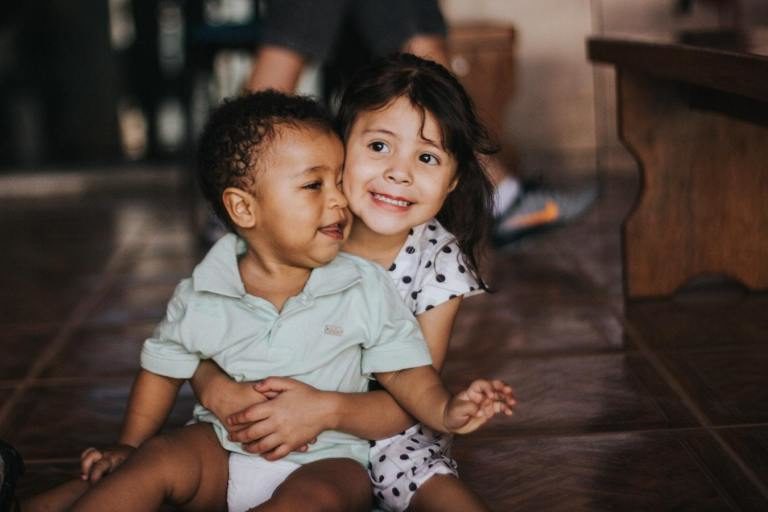
Since 1985, we have been dedicated to providing quality mental health treatment to our community’s youth. Palm Shores Behavioral Health Center provides comprehensive mental health care and education services for at risk children and adolescents, families and our community.

Palm Shores Behavioral Health Center is an intensive inpatient psychiatric program for males and females, ages 5 – 17 years old. Our Board Certified Psychiatrist, Dr. Jaime Barker, has provided intensive residential treatment services to children and adolescents for over thirty six years. He is a nationally recognized expert in his field. We offer a highly structured supportive and safe environment for children and adolescents who are experiencing behavioral, emotional, family and social challenges.
Treatment involves a multi-disciplinary team of clinical staff, including psychiatrists, mental health therapists, expressive and recreational therapists, registered nurses, mental health technicians and certified teachers.
The program is designed to re-establish healthy behaviors while successfully transitioning residents back into the family, home, school and community as soon as possible.
Palm Shores is a fully licensed specialty Residential Treatment Center (RTC), accredited by the Joint Commission. We are a network provider for most major insurance plans with residential treatment benefits, TRICARE® and ChampVA-certified in addition to managed care Medicaid.
TRICARE® and ChampVA Certified
Palm Shores Behavioral Health Center provides services to our military families, supporting those who have supported us. Specialized services in our trauma informed care environment are utilized to include opportunities for individual therapy, group therapy, family therapy, certified behavioral analyst services, expressive therapies, therapeutic family (home) assignments, and community outings.
Help is Just a Phone Call Away
941-792-2222
www.palmshoresbhc.com
Devereux Advanced Behavioral Health Florida is pleased to offer a full continuum of behavioral health, child welfare and intellectual/developmental disabilities programs and services. Our programs embrace four significant essentials of treatment through family engagement, behavioral assessments, trauma informed care and positive behavior support.
It is a policy of Devereux to practice non-discrimination in services. All activities — with regard to referrals, admissions, placement of individuals and provision of services — shall be conducted without regard to race, color, religious creed, ancestry, national origin, sex and sexual preferences.
Devereux Florida proudly supports diversity and inclusion for gay, lesbian, bisexual and transgendered individuals. Our services and programs are fully inclusive for all individuals regardless of sexual orientation, gender identity and gender expression.
If you have a disability and/or have limited English proficiency, Devereux staff can offer appropriate help (auxiliary) aids, including qualified or certified language interpreters to you and/or your companion.
Our programs and services include:
- Abuse & Neglect Prevention Services
- Autism & Intellectual/ Developmental Disabilities (I/DD) Program
- Child Welfare Case Management
- Child & Adolescent Psychiatric Specialty Hospital
- Commercial Sexual Exploitation of Children Program
- Diabetes Management Program
- Family Counseling Center
- Foster Care & Adoption Programs
- Intensive Residential Treatment Center
- Mental Health Services & Supports
- Mobile Crisis Services
- Outpatient Psychiatric Services
- Residential Group Care
- Specialized Therapeutic Group Home
- Statewide Inpatient Psychiatric Program
- Targeted Case Management
- The Devereux School
- Devereux Kids GAP & Youth Leadership Council
Contact Devereux Florida

Click here to use our online contact form.
Admissions & Central Referral Unit
Phone: 1-800-338-3738 ext. 77130
Mobile Crisis Services (For Orange, Osceola & Seminole Counties)
Phone: DIAL 211 or 407-839-HELP
Devereux Florida Corporate Office
Phone: (407) 362-9210
5850 T. G. Lee Blvd., Suite 400
Orlando, FL 32822
BNet Program
Phone: (321) 441-8623
Case Management & Child Welfare
Columbia County Phone: (386) 243-8800
Gilchrist County Phone: (352) 463-3111
Hillsborough County Phone: (813) 471-0218
Orange County Phone: (321) 441-1567
Polk County Phone: (863) 595-0167
Devereux Kids / Prevention & Diversion Program
Devereux Kids YSIA Program – Tampa; Phone: (813) 915-7101
Prevention & Diversion Program – Tampa; Phone: (813) 915-7101
Family Counseling Center /Outpatient Counseling
Orange/Seminole County; Phone: (321) 441-1030
Osceola County; Phone: (407) 343-5021
Volusia County; Phone: (386) 738-5543
Telehealth Services; Phone: (833) 231-4507
Foster Care & Family Care Programs
Brevard County (Family Care only) Phone: (321) 775-4897
Broward/Dade County Phone: (954) 962-1225
Lee County Phone: (239) 330-4936
Orange/Osceola/Seminole County Phone: (321) 441-1567
Volusia County Phone: (386) 738-5543
Intellectual/Developmental Group Homes
ADT Program Phone: (407)671-7060
Aquarius Phone: (321) 409-2096
Eagle Phone: (407) 380-7816
Gallagher Phone: (321) 409-2164
Kay Kay Phone: (407) 678-9814
Morrison Phone: (407) 678-3002
Riverton Phone: (407) 249-8396
Tucker Phone: (407) 672-2018
Warren Pearce Phone: (407) 388-0007
Orlando Campus
Phone: (407) 296-5300
Administration
Medical Records
Residential Group Care
Residential Treatment Center
Statewide Inpatient Psychiatric Program (SIPP)
School
Targeted Case Management
Phone: (321) 441-1567
Telehealth Services
Phone: (833) 231-4507
Titusville Campus
Phone: (407) 374-1950
Administration
Cottage
Lodge
Specialized Therapeutic Group Home
Service Centers
Broward-Dade Phone: (954) 962-1225
Orlando Phone: (321) 441-1030
Osceola Phone: (407) 343-5021
Polk Phone: (863) 595-0167
Volusia Phone: (386) 738-5543
Specialized Therapeutic Group Home
Boys (Titusville Lodge) Phone: (407) 374-1950
Viera Campus
Phone: (321) 242-9100
Toll Free: 800-338-3738
Admissions & Central Referral Unit Phone: ext. 77130
Administration Office
Intellectual/Developmental Disabilities Program
Intensive Residential Treatment Center
Commercial Sexual Exploitation of Children Program
Medical Records
The Devereux School & Vocational Program
Don’t wait another day. Help is a phone call away. (866) 945-4271
About Us
Our Mission
We help transform the lives of adolescents addicted to alcohol and other drugs or who have co-occurring mental disorders, and we provide hope for families who are affected by the consequences of drug use.
Our Vision
We will help lead patients to recovery and build long-term relationships with affected families so that, together, we are able to overcome adolescent drug and alcohol addiction.
Substance Abuse
The National Survey on Drug Use and Health shows each day roughly 8,000 people aged 12 or older will use an illicit drug for the first time. The 2015 Monitoring the Future study revealed 10% and 8% of eighth-graders and 35% and 24% of high school seniors had abused alcohol and drugs, respectively, in the past month. These statistics may be shocking and they cannot be ignored. That’s why Next Generation Village is committed to helping teen addicts recover from substance use disorders using scientific methods that have been proven to work.
Co-Occurring Disorders
According to the National Institute on Drug Abuse, as many as six in 10 addicts also suffer from a mental health disorder, but less than 10% of that population will ever get treatment for both conditions. At Next Generation Village, our treatment professionals know substance use disorders often trigger mental health disorders, and vice versa. We provide a full continuum of care to combat adolescent co-occurring disorders, addressing both parts of their dual diagnosis so they can make lasting strides toward recovery.
Eating Disorders
Of all the disorders that often co-occur with addiction, eating disorders can be one of the most nuanced and the most dangerous. Both conditions are inextricably linked — according to the National Center on Addiction and Substance Abuse, almost 50% of people with eating disorders also abuse drugs or alcohol and roughly 35% of addicts also have an eating disorder.
Teens are specially at risk for developing eating disorders because of their changing bodies, social pressures from peers and unrealistic influence from Hollywood. Our treatment professionals and on-site chef are specially trained to help teens struggling with addiction and eating disorders overcome both of their conditions together.
Who We Treat
Treating adolescent addiction requires an elevated level of expertise and patient care, which we are proud to have established at Next Generation Village. Specifically, we work with teens aged 13 through 17. This population is the most vulnerable to developing substance abuse problems, and also has the most potential to recover. We believe working with this age group is essential because it gives teens their best shot at living a happy, healthy, sober adult life.
How We Help
Next Generation Village takes the guesswork out of recovery by using a scientifically-proven method — what we call the three-pronged approach — to treat teen addictions and ensure a long lasting recovery. The three prongs — therapeutic learning, cognitive healing and medical assistance — all contribute to well-rounded patient care, which we further individualize with our therapeutic experience.
Personalized Programs
All of our treatment programs are tailored to fit each patient because addiction isn’t one-size-fits-all, and neither is recovery. This is where the three-pronged approach comes in — using this research-driven method has consistently matched patients to the level of care they need, proving following research and empirical data is a critical step in rehabilitation.
- Therapeutic learning involves teaching our patients about themselves, their addiction and how to live a sober life once they leave Next Generation Village.
- Cognitive healing is a holistic growth method we use to help patients address the “why” behind their addiction, including any emotional turmoil or co-occurring disorders they may be facing.
- Medical assistance eases our patient’s recovery so they can less time feeling sick and more time getting well.
Why Choose Us
Next Generation Village is one of several centers in the Advanced Recovery Systems (ARS) network. Founded in 2012 by a dedicated team of physicians and clinicians, ARS has connected countless people of all ages to treatment for mental health and substance use disorders. Using the resources of a national network, Next Generation Village provides high quality, evidence-based care for adolescents. With a team of dedicated, qualified addiction treatment professionals, Next Generation Village is committed to helping your teen conquer their addiction.
Our Staff
It takes many talented people to make your teen’s recovery possible. All of our staff, from doctors and therapists to admissions specialists and the facility manager are hand-picked for their professional expertise and dedication to helping our patients. Together, they represent some of the finest minds in adolescent addiction treatment and recovery.
Our Facility
Our newly-constructed facility was specifically designed to support and comfort our patients during their treatment. Certain amenities promote a healthy lifestyle, like a gym and on-site chef, while others are designed for comfort, like spacious bedrooms with private bathrooms and Lake Sebring views. Location also plays a role — we selected Sebring, Florida, to be the home of our world class recovery facility for its ease of access for patients across the U.S. and a climate that fosters fun patient amenities like a swimming pool and outdoor volleyball and basketball courts.
NEXT GENERATION VILLAGE
1062 Lake Sebring Dr
Sebring, FL 33870
Phone: (863) 658-0495
www.nextgenerationvillage.com
Click to Call our FREE 24/7 Helpline 1-888-574-4612
Our Treatment Programs
The Watershed Addiction Treatment Programs in Florida and Texas offer inpatient drug and alcohol treatment, which begins with a medical detox and inpatient rehabilitation stay at our treatment facility. Inpatient rehab for alcoholism and drug addiction is proven to be effective in ensuring a successful recovery.
In addition to our various types of addiction treatment programs for alcoholism and drug addiction, our patients can find the path that works for them and effectively utilize the tools we give them to embrace a full, healthy and sober life.
There are two locations for The Watershed’s inpatient alcohol and drug rehab, one of which is in Boynton Beach, Florida and another in Clear Lake, Texas. Along with our inpatient rehabilitation facilities, The Watershed offers a full continuum of care with programs in Lake Worth, Florida and Clear Lake, Texas.
Quitting an addiction to drugs or alcohol without medical assistance can pose significant dangers to your health. In order to avoid serious consequences and the pain of withdrawal, we offer a safe, medical detox program to comfortably release you from your addiction to alcohol or drugs. Learn more.
Inpatient drug and alcohol rehabilitation can help you change destructive behavior. At The Watershed’s inpatient drug and alcohol treatment center, clients are also taught how to prevent relapse so they can live a new life without their addiction. Learn more.
We treat all of our clients with dignity and respect while helping them successfully transition from treatment back to their community. Through The Watershed’s programs, alcoholics and addicts will learn how to abstain from mind-altering substances in safe, welcoming and empowering environments. Learn more.
Our goal is to bring patients back into society and enable them to live again. Patients in this phase of treatment are given more independence and responsibility. As a step down from the Residential program, the Partial Hospitalization Program (PHP) provides on-going therapy for continued recovery. Learn more.
Patients who have progressed in their recovery efforts in the Partial Hospitalization Program will transition into the Intensive Outpatient Program. While continuing to live at The Watershed Apartments, they have the ability to work or go to school during the day, and attend therapy groups in the evenings. Learn more.
Halfway House at The Watershed
The Watershed Apartments Halfway House is an integral part of our successful continuing care plan. Living in a supportive and structured environment has proven to be the element that enables individuals to fully embrace the process of recovery. Learn more.
Get Help Now for Addiction! Our 24 Hour Helpline has professionals waiting to help you today.
Call 1-888-574-4612 for help right now!
The Watershed Addiction Inpatient Treatment Programs is “Gold Seal” accredited through The Joint Commission. In addition to this, The Watershed is licensed by The State of Florida (FL) Department of Children and Families to perform addiction treatment and substance abuse detoxification for:
- •Alcohol addiction
- •Drug addiction
- •Opioid addiction
- •Heroin addiction
- •Cocaine addiction
- •Methamphetamine addiction
- •Marijuana addiction
- •Various other types of addictions and substance use disorders
The Watershed is able to treat these conditions with intensive inpatient residential drug and alcohol rehab, as well as with Partial Hospitalization Programs, Intensive Outpatient Programs, and sober living environments. Don’t settle for less when you could receive the best treatment and heal from the wounds of addiction. Call The Watershed today.
Our Difference
Founded in 1927, Brookwood provides a unique, life-changing residential program for at-risk girls between the ages of 13 and 21. Brookwood typically aids 120 -130 girls per year who have suffered abuse, neglect, homelessness, or serious family dysfunction. The goal of the program is to help prepare the girls to become self-sufficient and self-supporting adults, and work toward family reunification when feasible. Girls are referred to Brookwood in three ways:
- The Florida Department of Children and Families
- Parents experiencing stressful parent-child relationships
- Crisis shelters
Brookwood’s exceptional program offers a lifeline to girls who would otherwise be prime candidates for much more costly and restrictive programs. Without Brookwood, these girls have a greater chance of dropping out of school, becoming teens mothers, experiencing substance abuse, or risk becoming victims of human trafficking. Many residents struggle with mental health issues that would only be exacerbated without the support provided through Brookwood’s 24-hour program. Privileges and responsibilities are detailed in a level-system format, teaching the teens that the two go hand-in-hand. As they demonstrate responsible behaviors, they will earn more desired freedoms.
Four-Part Program for Brookwood Residents:
One of the main programs that sets Brookwood apart from its counterparts is its Four-Part program. Along with a safe and nurturing environment, Brookwood’s Four-Part program includes the following key components:


Website: https://www.brookwoodflorida.org/
Website: https://clothestokids.org/
Change a Life.
Our mission is to provide new and quality used clothing
to low-income or in crisis school-age children, free of charge.
Come and shop with us.
BECOMING A CLOTHES TO KIDS SHOPPER REQUIRES THREE THINGS
1. Your child must live and attend school in Pinellas or Hillsborough County. We are currently serving kids in PreK4-12th grade.
2. Your child must be eligible for free or reduced-price lunch through Pinellas or Hillsborough County Schools. We require proof of free or reduced-price lunch** from the child’s school, which can be the “lunch letter.”
3. Call us and make an appointment. All shopping at Clothes To Kids is by appointment only. Call 727-441-5050 to shop in Pinellas County (St. Pete or Clearwater Stores) or 813-616-6430 to shop in Tampa. Please keep in mind that during our busy months (back-to-school, holidays) appointments may book out as far as two weeks. Bring proof of free or reduced-price lunch eligibility and some form of photo ID to your appointment.
Then, come and shop with us! We look forward to seeing you at Clothes To Kids!
**In a crisis, or for your first visit, a referral from an approved agency by a social worker, caseworker teacher, administrator, counselor or place of worship is accepted.

REFERRING AGENCY?
The referral form can be completed by the following community advocates:
- A social worker or caseworker at a local agency
- A teacher, guidance counselor, or social worker at a school
- A religious leader at a place of worship
The Referral Form must be printed by an agency, school, or congregation and must be dated and signed by an agency representative. Please fill out our the Referral Form completely, including the following:
- Parent name, address and phone number
- Children’s names, dates of birth and the school they attend
- A sentence stating that you know the family and that they are in need of assistance

We ask that you refer only those families that you know firsthand, and who you know to be in financial need of our services. We also ask that you verify that the children are enrolled in Pinellas or Hillsborough County Schools, grades Pre-K4 through 12th. Please notify parent or guardian that they may be asked to provide proof of enrollment upon arrival at the store. All referral letters are subject to verification. If you would like to refer a family to shop at Clothes To Kids, please click here.
Please instruct families to call 727-441-5050 to make an appointment and remind them to bring their proof of eligibility or referral with them to their appointment. Parents are not required to bring their children to obtain clothing, however they are always welcome as fitting rooms are available. Clothes To Kids is a year-round program. Eligible children may shop twice in a 12-month period. Let’s shop!

Website: https://www.drugrehabconnections.com/
What is Drug Rehab?
If you or a loved one is suffering from drug addiction, you may be looking for help curing the disease. One of the most well-known methods is drug rehab. However, many people don’t realize that “drug rehab” is a broad-encompassing term that represents various treatment methods. The type of drug rehab that you choose could depend on an array of factors.
For instance, according to the National Institute on Drug Abuse, treating addiction will typically require several components due to the complexity of its nature and treatment will include a variety of pharmacological and behavioral approaches.
The NIH further elaborates that there are more than 14,500 specialized treatment facilities in the United States and that these facilities can provide services including, but not limited to, counseling, medication, case management, and behavioral therapy. This article will give an extensive breakdown of what drug rehab is and the factors to consider when choosing a facility.
HOW DO I KNOW IF REHAB IS FOR ME?
Unfortunately, many drug addiction cases spiral out of control before the user accepts that it’s time to attend a rehabilitation clinic. Looking into an addiction treatment program might be worth considering.
Statistics from the National Survey on Drug Use and Health conducted by the Substance Abuse and Mental Health Services Administration finds that nearly 23 million Americans need treatment for alcohol or drug abuse, but less than one percent seek out the help they need.
Those who suffer from addiction may find it difficult to determine when they need to enter rehab. Psych Central cites denial as one of the primary roadblocks preventing someone from seeking the help that they need. Consider the following questions listed below. If you answer “yes” to any of them, rehab could potentially be for you:
- Have you ever operated a motor vehicle while high or intoxicated?
- Have your loved ones asked you to stop getting high or intoxicated?
- Has your doctor told you that your addiction is affecting your health severely?
- Do you abuse drugs that are illegal?
- Do you experience withdrawals when you go too long without taking your drug of choice?
- Have you harmed yourself or others while high or intoxicated?
- Have you been fired from a job because of substance-related issues?
- Do you lie about your drug use?
- Have you been fired from a job because of substance-related issues?
- The critical thing to remember when deciding on rehab is that you are not alone. Thousands of trained professionals are available to help you determine if rehab is right for you and, if so, which facility you should enter.
- Many experts strongly recommend that you contact a licensed professional who can provide an assessment of your individualized needs.
The professional who you see should not have a connection with a rehabilitation or treatment center. However, you should try to find someone who specializes in substance abuse problems.
Examples include physicians, licensed psychologists, licensed clinical social workers, mental health counselors, addiction counselors who are licensed or certified, and family therapists.

WHY IS DRUG REHAB IMPORTANT?
Many people might be hesitant to get help. Entering a drug rehab program is a critical step on the road to recovery. First and foremost, drug rehab is beneficial because it can break a user’s addictive cycle. That’s because rehab places addicted individuals in a healthy environment that is free of substances. There are also trained staff in place that can hold addicts accountable to their goal of quitting drugs.
Some addicts may require a detoxification cycle before beginning addiction treatment. This is perhaps one of the most significant misconceptions of drug rehab. Many people assume that detoxification is standard practice and is the “only” thing that occurs in a rehabilitation clinic. However, this is not the case. Drug rehab clinics seek to address the root problem to help break the long-term cycle of addiction.
One of the ways drug rehab programs do this is by teaching addicts about their disease. They will not do this until the body is free from drugs since addicts will be in a much clearer mental state at this time.
Learning about addiction allows participants to identify the events, experiences, and habits that trigger their cravings. Awareness can reduce the likelihood of engaging in these activities.
Lastly, drug rehab is important because it affords participants the opportunity to construct new habits. One of the more common characteristics of addicts is poor self-discipline and care. Rehab provides these individuals with the chance not only to set goals but to accomplish them as well. Routinely achieving goals provides addicts with an improved sense of self-worth and resolve.
Types of Drug Rehab
Another common misconception about rehab is that every clinic is the same, or that there is only one type available. However, as you’ll see below, there are at least seven types of drug rehab available, ranging in intensity from support groups to inpatient rehab. The option that you choose will have a lot to do with the severity of your addiction, mental state, and other factors.
If you’re suffering from addiction or are considering drug rehab for a loved one, we strongly advise that you do extensive research on the various options available. The ability to make an informed decision, and the type of rehab that you choose, could impact the likelihood of success considerably. And remember that it’s in your best interest to seek the advice of a trained medical professional.
INPATIENT REHAB
According to the Delphi Behavioral Health Group’s Addiction Center, the highest level of care comes from Inpatient programs that include medically supervised detoxification and all-day support. The duration of a stay in an inpatient facility can depend significantly on the severity of the addiction. Although the average visit is 30 days, patients can stay longer than 90 days if necessary.
Other factors that determine how long patients stay at these residential treatment centers include any mental health conditions and an individual’s prior history with rehab.
Inpatient rehab clinics also seek to assist families and loved ones via counseling and other planned activities. This is useful in allowing patients to help mend fences and reconnect with loved ones they have harmed. Typically, a treatment plan will be designed and implemented for the patient.
OUTPATIENT REHAB
The Addiction Center says that outpatient rehab facilities can be beneficial for those with a mild substance abuse problem who are serious about getting sober. They allow the freedom to continue working and caring for a family while recovering.
The Addiction Center elaborates that outpatient rehab is best for those who wish to stop abusing substances but cannot escape commitments, thereby requiring a flexible schedule. Outpatient rehab facilities will likely require patients to check in at pre-specified times for treatment. Treatment in outpatient rehab facilities can include medication and counseling. Outpatient treatment is a popular choice amongst those with less serious addictions.
DETOXIFICATION REHAB
A detoxification rehab program stipulates that before patients can begin healing, they must remove all drugs and toxins from their body. It is much easier to detox from drugs under the care and supervision of trained medical professionals, as opposed to attempting to do it on your own. Medical professionals could provide patients with safe drugs that could help ease withdrawal symptoms.
Detoxification rehab programs could be useful because they do not take nearly as long as inpatient or outpatient programs. Additionally, because a detox rehab program is not nearly as long, it is also not nearly as expensive.
Unfortunately, these programs fail to address the root of addiction in individuals and do not involve much counseling with the family, which could increase the likelihood of relapse.
HOSPITALIZATION REHAB
Hospitalization Rehab, often known as a Partial Hospitalization Program, allows addicts to check into a treatment center or hospital for a certain number of hours each week. This is most similar to an outpatient rehab center, in that individuals will return to their home after their treatment program. However, in an outpatient clinic, patients may check in briefly and then leave.
In a hospitalization rehab program, patients will attend sessions that can last up to a few hours a day. This could be best suited for those who have recently completed their inpatient treatment program but do not feel prepared to return to the real world or an outpatient program.
Those who have recently relapsed and are looking for structure and guidance could also benefit from hospitalization rehab.
INTENSIVE OUTPATIENT REHAB
Intensive Outpatient Rehab does not rely on a detoxification program. It does, however, focus on counseling and treatment in a group setting. An intensive outpatient rehab program could require anywhere from 6 to 30 hours of addiction treatment each week.
Patients would be able to go to work, but they are mandated to check in at the facility at the end of the day and again in the morning.
An intensive outpatient rehab program is much more intense than an outpatient rehab program. An IOP will also schedule various classes and workshops throughout the day in which the patient must attend. This type of program could be most beneficial for those who are seeking structure in their lives while recovering from addiction.
SOBER LIVING HOMES
A Sober Living Home is otherwise commonly known as a halfway house. These homes can help addicts as they seek to return to daily life without substances. A sober living home is a beneficial environment because other people in the situation are also finding sobriety. These homes could help drive home lessons learned in rehab.
According to the Addiction Center, moving into a sober living home after treatment is often the difference between going back to old habits or continuing on the path of sobriety. Sober living homes are not as rigorous as inpatient facilities. They are often secondary treatments used in conjunction with other programs, as opposed to primary options.
SUPPORT GROUPS
Support groups are the least-intensive type of drug rehab available. The Mental Health Institute states that support groups allow individuals to share experiences and stories with one another, thereby reducing loneliness and isolation. Support groups often prove to be an eye-opening experience, allowing patients to see that there are others in similar situations also fighting to heal.
Support groups are most useful as a long-term drug rehab program in that they can help hold former addicts accountable years after their treatment is complete. Patients find themselves surrounded by like-minded individuals who are in similar situations like the ones with which the patient is struggling. Many find it easier to discuss issues like temptation and family problems with others who understand.
Types of Therapy Methods Used in Rehab
Instead of focusing solely on chemical dependency or detoxification, rehab often takes aim at preventative measures that individuals can implement moving forward to increase their chance of success. Much like there are several types of drug rehab available, there are also various types of therapy methods used.
GROUP THERAPY
Group therapy tends to involve a licensed professional and multiple patients. Although group therapy sessions can occur at inpatient facilities, they are more likely to happen in the other rehabilitation programs. Group therapy sessions can last up to an hour. These sessions tend to be particularly useful because they help confront one of the primary issues of addiction.
Many addicts feel the need to lie about their problems, whether it be to themselves or family members. A group therapy session creates a support mechanism in which patients are encouraged to open up about their issues in a safe setting. Since every member of the group understands that the patient is going through, there is no need for the patient to hide anything or lie.
INDIVIDUAL THERAPY
When undergoing individual therapy, patients engage in one-on-one sessions with a professional counselor. These sessions will occur at least once a week, and perhaps more frequently depending on the program in which the individual chooses to enroll. An individual therapy session lasts approximately 45 minutes.
Individual therapy often includes cognitive behavioral therapy. Licensed professionals utilize these techniques in seek of a solution-oriented approach.
The National Association of Cognitive Behavioral Therapists indicates that CBT can be helpful because it treats addiction as a learned behavior. By using CBT, the goal is to re-train the mind and break the addiction.
FAMILY THERAPY
According to the Positive Psychology Program, family therapy is designed to address specific issues that affect both the function and health of a given family.
Family therapy is often one of the most challenging parts of a drug rehab program because it forces patients to listen to those who they have hurt most.
However, many experts believe that making amends with loved ones is critical in the healing process and plays a significant role in determining the likelihood of success.
EXPERIENTIAL THERAPY
Of the therapy options available, this is undoubtedly one of the more unique. Psychology Today shares that the program is therapeutic, relying on specialized activities such as acting and role-playing. It could also utilize tools such as music, arts and crafts, or guided imagery. The goal is to simulate emotional situations that have occurred in relationships due to addiction.
Rehabs.com likens experiential therapy to an iceberg. They say that while some portions of the ice could be evident from the surface, many of the most critical issues lie below the surface. Experiential therapy helps to chip away at the “giant mass” that exits beneath the surface, helping to expose problems suppressed for years.
What Questions Should I Ask When Looking into Treatment Programs?
If you or a loved one is considering drug rehab or entering a drug rehab center, it’s vital that you find the right treatment program for your specific needs. Choosing the correct treatment will increase the likelihood that it will be useful. Furthermore, a rise in the opioid crisis has created an array of knockoff or unethical treatment centers who use deceptive marketing practices to solicit business.
We must again stress the importance of talking with a licensed medical professional when choosing a treatment program. We do not recommend talking to someone affiliated with a treatment program, as they have an interest in recruiting patients to attend their facility.
Instead, ask for impartial expertise from someone who you can trust. Questions that you may want to consider asking include:
- Is the treatment center certified by either The Joint Commission or the Commission on Accreditation of Rehabilitation Facilities?
- What are your goals for entering a drug rehab program?
- What is the expected length of the program?
- Does the treatment center use medication to help withdrawal symptoms? If so, what kind?
- What does the treatment program do to promote long-term health and wellness? Do they include a nutritional component?
- How is the family involved in the rehab process and drug treatment plan?
- Do they support a variety of addictions including alcohol abuse, alcohol addiction, and other substance use disorders?
- What does the anticipated recovery process look like?
- Do treatment options differ based on insurance coverage?
- Does the recovery center have good reviews and is the drug rehabilitation tied to evidence-based treatment?
The answers to all those questions will reveal what the best rehab program is for the patient and what type of addiction help they truly need.
Who Suffers From Addiction?
Addiction can happen to anyone. A drug or alcohol addiction can take many forms, and while there are undoubtedly both internal and external forces that can lead to a larger chance of forming an addiction, this disease is completely color blind.
It doesn’t matter what you look like or where you come from, addiction can happen to anyone. There are many misconceptions about people who are drug addicts or alcoholics. Our mission is to help you or your loved one find answers and support on what steps you can take to overcome your addiction.
Millions of Americans struggle with this disease and we are here to help you understand how addiction can form and from there guide you to proper treatment and rehab.
Help is out there and it is available to you. There are many treatment options, from inpatient rehab to outpatient counseling and support groups. Just because a problem has developed doesn’t mean it has to stay a problem.
No matter what your background is, we view you as a person and not just a drug addict. Know that you are loved and cared for, and we will do whatever it takes to help.
The Drug Rehab Connections Promise
We always promise to be on your side.
Our organization was founded upon three principles:
- Information
- Reality
- Action
We are not a treatment center, we are an independent website that understands the importance of recognizing addiction and helping guide those who need help to find treatment and rehab.
We firmly believe that everyone deserves a second chance. We are not here to judge, we are here to listen and help.
SOURCES
An Overview on Experiential Therapy. (n.d.). Retrieved from https://luxury.rehabs.com/experiential-therapy/
Denial: The Primary Roadblock to Addiction Recovery. (2018, January 08). Retrieved from https://psychcentral.com/lib/denial-the-primary-roadblock-to-addiction-recovery/
Experiential Therapy. (n.d.). Retrieved from https://www.psychologytoday.com/us/therapy-types/experiential-therapy
Find Support Groups. (2018, March 26). Retrieved from http://www.mentalhealthamerica.net/find-support-groups
National Institute on Drug Abuse. (n.d.). Drug Addiction Treatment in the United States. Retrieved from https://www.drugabuse.gov/publications/principles-drug-addiction-treatment-research-based-guide-third-edition/drug-addiction-treatment-in-united-states
National Institute on Drug Abuse. (n.d.). Nationwide Trends. Retrieved from https://www.drugabuse.gov/publications/drugfacts/nationwide-trends
What happens in individual therapy? (n.d.). Retrieved from https://www.crchealth.com/addiction/drug-addiction-rehab/drugs-addiction-treatment/what_happens_in_individual_therapy/
What Is A Sober Living Home? (n.d.). Retrieved from https://www.addictioncenter.com/treatment/sober-living-homes/
What is Family Therapy and What Are Its Goals And Benefits? (2018, August 13). Retrieved from https://positivepsychologyprogram.com/family-therapy/

Addiction Help is your trusted educational guide to addiction and recovery, founded by recovering addicts and board-certified addiction specialists. Whether you are struggling with addiction or concerned about a loved one’s substance abuse, our mission is to lead you to a healthier, happier life.

Take Back Control Of Your Life
Watching your loved ones struggle with addiction can leave you feeling helpless but know that you are not alone and that there is hope for a successful recovery. Offering support and finding professional treatment is the best way to get someone on the road to a sober and happy life. We offer comprehensive information on determining the right treatment and help you stay on track to a happier, healthier, addiction-free life.
Or call (866) 979-1766
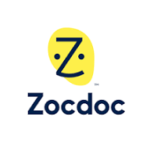
Preventing Self-harm in Teens: A Guide for Appropriate Intervention

Teens have the highest rate of self-harm among any age demographic, with approximately 17% of teens reporting at least one instance of self-harm in their lifetime. The average age of the first incident of self-harm is 13. Often teens will seek out support from loved ones rather than mental health professionals. However, many teens will take extraordinary steps to conceal their self-harm, or even deny engaging in such behavior.
Additionally, they may not even be aware of what professional resources are available to them. As such, it is important for anyone with a teen in their life to be aware of warning signs and understand how to appropriately address instances of self-harm.
